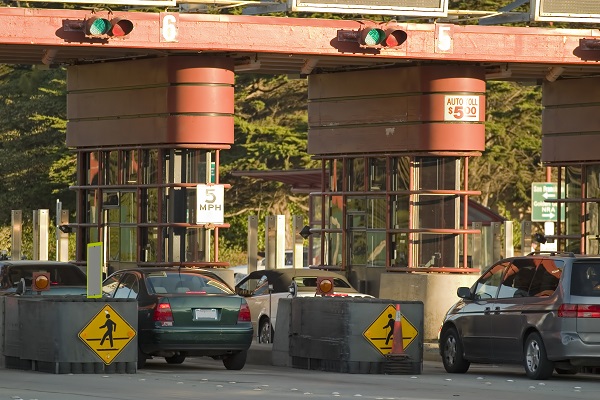In an unpublished ruling, the U.S. Court of Appeals for the Eleventh Circuit recently affirmed dismissal of a borrower’s putative class action suit filed against a mortgagee alleging violations of the Fair Credit Reporting Act for failing to conduct a reasonable investigation into disputed information reported to the credit reporting agencies. In so ruling, the Court concluded that the borrower failed to demonstrate that a reasonable investigation would have uncovered an inaccuracy in certain information provided by the mortgagee to the credit reporting agencies, and the mortgagee had no duty to investigate a separate dispute because the borrower did not…
Posts published in “Class Actions”
Class Actions
The U.S. Court of Appeals for the Second Circuit held that even if a class action case is brought pursuant to a fee-shifting statute, common-fund principles control fee awards authorized from a common fund, and a common-fund fee award may be calculated as the lodestar or as a percentage of the common fund. Accordingly, the Second Circuit affirmed the trial court’s ruling finding that lead plaintiff’s counsel was entitled to its requested fee and expense award. A copy of the opinion in Fresno County Employees’ Retirement Association v. Isaacson/Weaver Family Trust is available at: Link to Opinion. This case involved…
The U.S. Court of Appeals for the Eleventh Circuit sua sponte issued a new opinion to vacate and replace its prior opinion affirming approval of a class action settlement against a retailer for alleged violation of the Fair and Accurate Credit Transactions Act for printing more digits of his credit card number on a receipt than permitted under the act. Departing from contrary opinions by other federal appellate courts, the Eleventh Circuit’s new opinion offers an updated analysis of the plaintiff-appellee consumer’s standing to bring the action under Spokeo, holding that the risk of identity theft the consumer suffered was sufficiently…
The Appellate Court of Illinois Fifth District affirmed the dismissal of a borrower’s alleged putative class action alleging that the successor to a credit card issuer violated various state and federal laws when it filed suit to collect the debt past the four-year statute of limitations for the sale of goods under the Illinois version of the UCC (810 ILCS 5/2-725). In so ruling, the Appellate Court held that the issuer properly filed suit within the five-year statute of limitations that applies to credit card agreements under 735 ILCS 5/13-205. In addition, the Appellate Court ruled that advancing money to pay…
The Supreme Court of Missouri recently held that a trial court abused its discretion by certifying an overly broad class with a class representative whose claims against the debt collector defendant were not typical of the class. More specifically, the class definition was deemed overbroad because approximately 87 percent of the class members’ claims were either precluded by final deficiency judgments, or estopped by their failure to disclose the claims in bankruptcy, and the class representative failed to meet typicality requirements, because she did not suffer the same alleged injury as the class members. A copy of the opinion in…
In a 5-4 decision, the Supreme Court of the United States recently held that under the Federal Arbitration Act (FAA), an ambiguous agreement cannot provide the necessary contractual basis for concluding that the parties agreed to submit to class arbitration. Accordingly, the contrary ruling of the Ninth Circuit was reversed and the matter was remanded to the trial court for further proceedings. A copy of the opinion in Lamps Plus, Inc. v. Varela is available at: Link to Opinion. The defendant company sells light fixtures and related products. In 2016, a hacker impersonating a company official tricked a company employee into…
The Supreme Court of the United States recently vacated the U.S. Court of Appeals for the Ninth Circuit’s approval of a class action settlement against a prominent technology company claiming violations of the Stored Communications Act. In so doing, the Supreme Court concluded that significant questions regarding the class plaintiffs’ Article III standing had not yet been adequately considered by the lower courts following its ruling in Spokeo v. Robins, 578 U.S. ___ , and remanded for consideration of whether any of the named plaintiffs has alleged SCA violations that are sufficiently concrete and particularized to support standing in federal…
The U.S. Court of Appeals for the First Circuit recently affirmed dismissal of a putative class action lawsuit that challenged the company’s arbitration clause. The Court rejected the named plaintiff’s primary argument that the arbitration clause’s arbitration-fee-splitting arrangement was unconscionable and unenforceable, because the trial court was allowed to consider the defendant’s offer to pay for the full costs of arbitration, thus rendering the clause enforceable under Massachusetts’ Wage Act, because the potential costs of arbitration were less than the cost of potential recovery. A copy of the opinion in Bekele v. Lyft, Inc. is available at: Link to Opinion. In…
The U.S. District Court for the Southern District of Florida recently denied a consumer’s motion for class certification in a putative class action against a debt collector. In so ruling, the Court concluded that the plaintiff consumer’s proposed class — which included members who did not make payments to the debt collector while also seeking actual damages as to proposed members who did make payments — presented individual issues concerning causation as to actual payments made in response to the collection letters at issue, and thus failed to overcome the predominance requirement under Fed. R. Civ. P. 23(b)(3). A copy…
The U.S. Court of Appeals for the Seventh Circuit held that merely requiring extrinsic evidence to interpret a provision of a form contract does not render class certification improper, and that absent a more thorough explanation of its reasoning from the trial court, it could not uphold the trial court’s ruling decertifying the class. As a result, the Seventh Circuit vacated the decision of the trial court and remanded for further proceedings. A copy of the opinion in Red Barn Motors, Inc. v. NextGear Capital, Inc. is available at: Link to Opinion. The plaintiff auto dealerships entered into demand promissory note…
The U.S. Court of Appeals for the Eighth Circuit recently vacated a trial court’s order approving a class action settlement agreement because the trial court did not first determine whether the FCRA class representative had standing. In so ruling, the Eighth Circuit held that a court’s approval of a settlement was a judgment, which is invalid unless the court has Article III standing and subject matter jurisdiction. A copy of the opinion in Schumacher v. SC Data Center, Inc. is available at: Link to Opinion. The plaintiff filed a putative class action in Missouri state court alleging the defendant violated the…
In a 2-1 decision, the U.S. Court of Appeals for the Ninth Circuit held that a putative class action against state entities and a private contractor for allegedly collecting and sharing personal data without authorization was essentially a local controversy and was therefore correctly remanded to state court under an exception in the federal Class Action Fairness Act (CAFA). Accordingly, the Ninth Circuit affirmed the ruling of the trial court remanding the matter to state court. A copy of the opinion in Kendrick v. Conduent State and Local Sols. is available at: Link to Opinion. The plaintiffs sought to maintain an action in…












